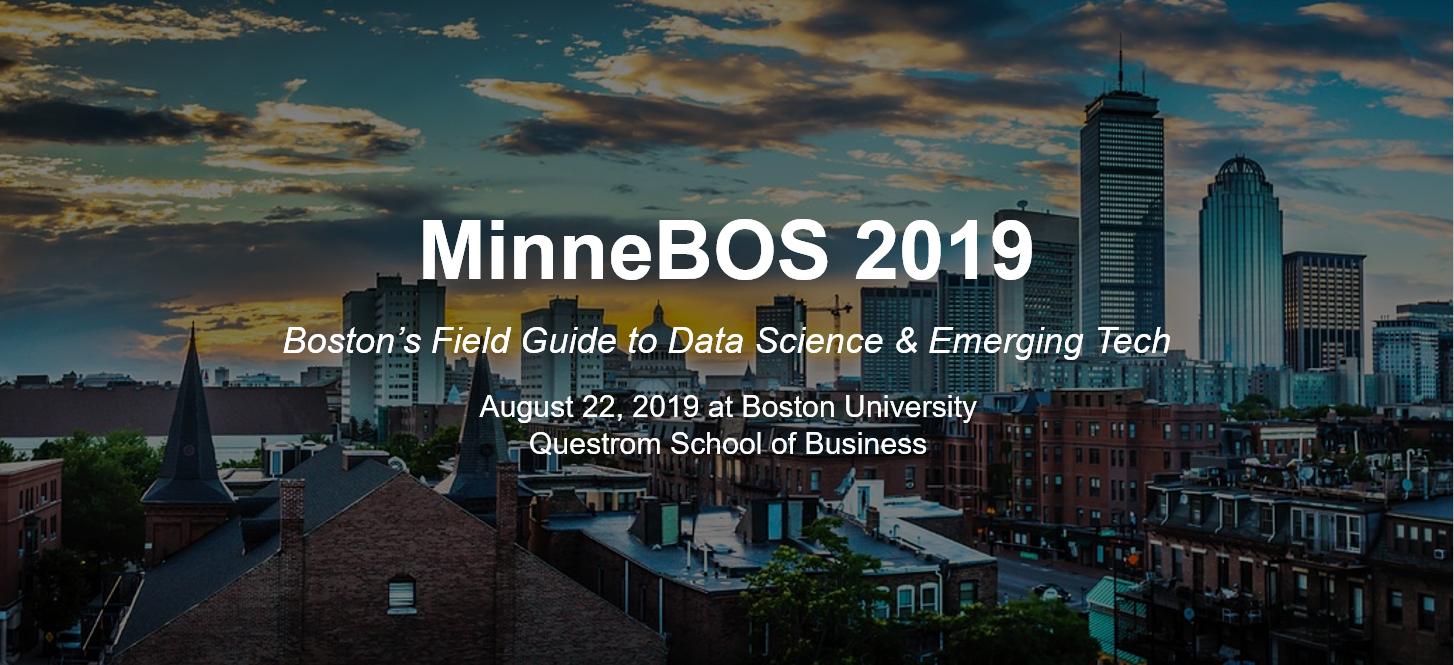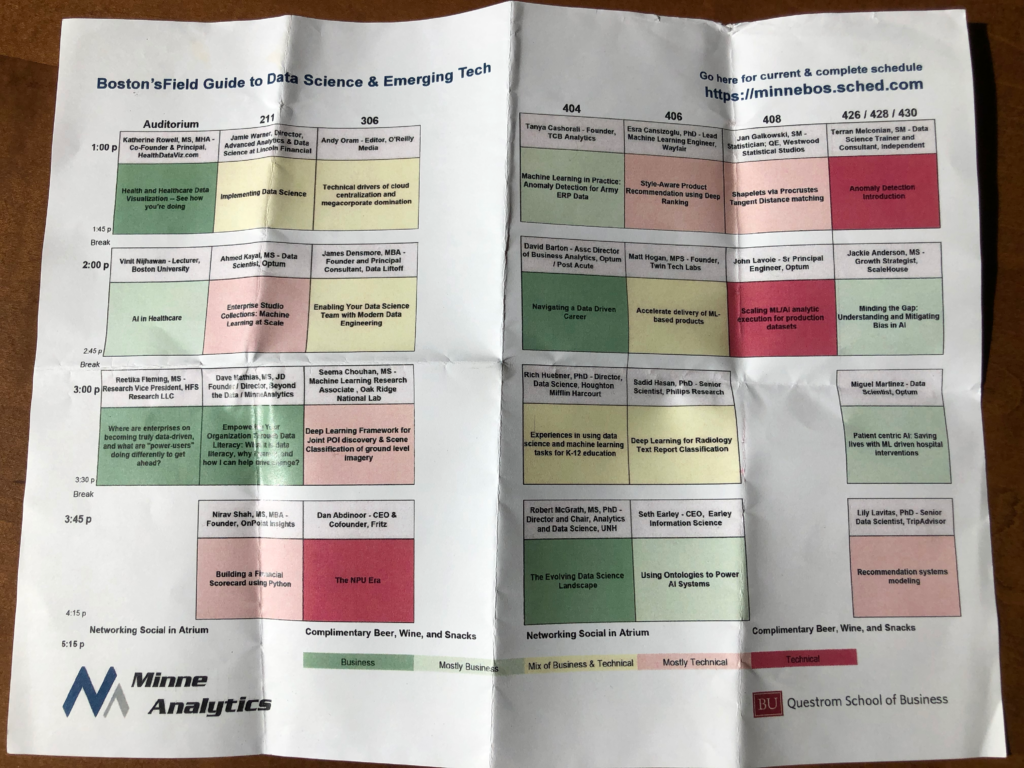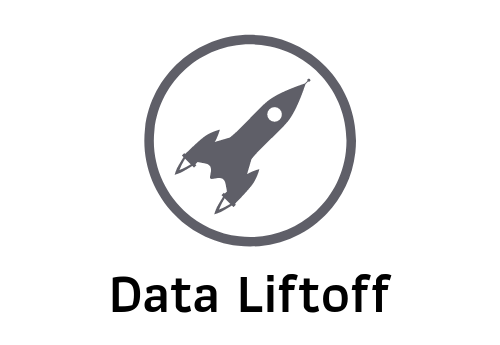MinneBOS 2019 Data Science and Analytics Conference

Last week I had the pleasure of attending and speaking at the MinneBOS 2019 data science and analytics conference in Boston. The folks at MinneAnalytics did an amazing job of putting it together. If you ever have a chance to attend one of their events, I highly recommend it.
The Conference
For those that haven’t heard of them, MinneAnalytics is a non-profit that is building a community and running analytics-focused events across the country. As such, MinneBOS 2019 was a free event, supported by a handful of generous sponsors. That said, there wasn’t a high pressure sales vibe by any means. It felt like the sponsors were there to build community and look for candidates to fill current and future roles as much as they were to build up their leads.
I haven’t seen any official numbers, but I’d guess there were about 50 speakers and over 800 attendees. A really solid crowd for a one day event. Boston University set aside plenty of space for us, and despite being a Boston College MBA alum, I have to say the BU Business School’s building where we were hosted was top notch 🙂
The Attendees
One thing that stood out was the wide range in experience of the attendees, both in years and industry. There were a good number of graduate students studying data science and analytics at BU and other local programs (I met students from Northeastern and MIT as well). I also connected with data scientists and data engineers working at a number of local tech companies. Mostly mid-level or Director level, but all were hands on in the data in their roles.
I came away with the realization that universities are all in on analytics in their certificate and 1 year grad programs. No longer is it left to a few rogue professors in computer science or the business school to set up specializations in other programs. The junior level talent pool is booming because of these programs and I think that’s a great thing.
Though I knew coming in that life sciences is a big sector in the Boston area, I had no idea how heavily represented it would be at the conference. I made it a point to go to a couple of sessions delivered by speakers in that industry, and it was fascinating to see how data is being used in the quest to improve health and well being.
The Speakers

As I mentioned, there are were about 50 speakers. I attended 6 sessions, including my own, and they were all great. That’s not always the case for a conference, so either I got lucky in the ones I picked or the folks at MinneAnalytics are excellent evaluators of speaking talent.
The speakers ranged from consultants and data professionals like myself, to well regarded figures in the industry like Tom Davenport. I’m a big fan of Tom’s work, and in fact his book “Competing on Analytics” was my first introduction to this industry. I had never seen him speak in person before, so his presence alone made the conference worth attending.
The talks ranged from high-level business strategy to highly technical and mathematical (clearly indicated on the conference schedule thankfully). I stuck mostly to the middle of the spectrum both for my talk and those I attended. It was nice to have the option to explore outside my comfort zone though.
My Talk
I presented a session titled “Enabling Your Data Science Team with Modern Data Engineering”. The idea was to speak to the difference between data science and data engineering and how the two teams can work as partners to produce data products, analysis and models. I got the sense that the concept resonated with the audience. There were a lot of great questions from both data scientists and data engineers in the room about what the teams need to know about each other, and a general acknowledgment that the two teams are often kept too far apart.
Though I suggested a number of ways that the teams can collaborate and work more closely together, if I present on this topic again I’ll spend more time on case studies. I know of a number of companies that pair these teams well, and I wish I had spoken to those in detail.
You can view my slide deck below.
Takeaways
Like I said, there were some excellent sessions. In addition to Tom Davenport’s talk on the state of analytics, I could have listed to Andy Andres talk sports analytics for hours. Katherine Rowell‘s presentation on “Health and Healthcare Data Visualization” was also amazing.
I’m still coming to terms with the number of aspiring and junior level analytics professionals. Boston has a ton of students, so I’m sure the audience was skewed to some extent. None the less, it’s beyond anything I’ve seen at past conferences. I better keep on top of my skill development or I’m going to get run over!
Though the conference was far more focused on business analytics and data science, there was a cluster of data engineers kicking around. The latter is a group that I love working with, and I hope that future analytics conferences find a way to give them a bigger forum. In the spirt of my talk, creating bridges between data science and data engineering is something we should all be thinking about. Conferences and Meetups are great places to overlap the groups.
Finally, if you were kind enough to attend my session, thank you! I didn’t know what to expect and was honestly a little nervous that my audience would be tiny. It was better than I had anticipated both in size and engagement. I had a ton of fun presenting, and I hope it generated some ideas that people could take back to the office.
If you haven’t already, you can sign up for the Data Liftoff mailing list to get more content and to stay up to date on the latest in data science and data engineering.
